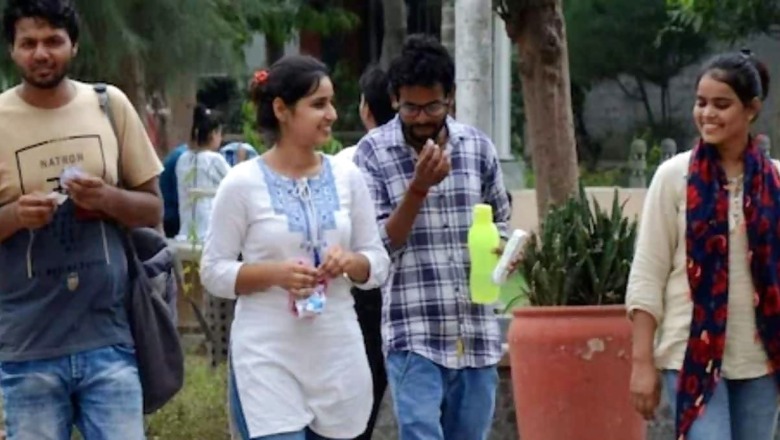
views
The University Grants Commission (UGC) approved a set of guidelines on Thursday, December 7, to introduce short-term skill development courses to integrate expertise into higher education. Anyone who has passed the Class 12 or Senior Secondary examination or its equivalent is eligible to take admission to the short-term courses.
The UGC on Thursday in a statement mentioned, “Draft guidelines for the introduction of short-term skill development courses in higher educational institutes (HEIs).” These courses would pave the way for students to pursue credit-based short-term skill development certificate courses for a duration of three to six months.
According to the guidelines by the UGC, universities and colleges can collaborate with relevant skill councils/awarding bodies and industry players to gain credibility, and access placement opportunities, funding and training schemes to ensure up-to-date industry-aligned course content. The courses will run in a self-sustainable mode, and universities/colleges are free to decide the availability of infrastructure and training capacity accordingly.
In its draft guidelines, UGC has also suggested short-term courses to be developed on emerging technologies, including artificial intelligence, robotics, machine learning, cloud computing, cyber security, 5G connectivity, the internet of things, data science, virtual reality, architectural drafting, basic 3D design, mobile communication, and repairing.
It also has courses like digital marketing, with courses in search engine optimisation, content marketing, social media marketing, and e-commerce management, FinTech, including courses in digital payments, digital currencies, blockchain technology, and financial regulations, and Basics of Start-ups and Entrepreneurship.
In addition to that, a course on yogic sciences is also one of the recommended programmes in the list of short-term skill-development certificate courses.
The UGC has framed the guidelines in line with the National Credit Framework notified by it and as specified in the National Education Policy (NEP), 2020. The guidelines will be available in the public domain next week, and feedback will be invited, as per the officials.
UGC Certificate Course Structure, Credits, Fee
As per the draft guidelines, a short-term skill development course in any stream shall be of at least 12 credits and a maximum of 30 credits. A student can earn one credit for 15 hours dedicated to theory, which is one hour per week, and one credit for 30 hours of practical or skill training spread across two hours per week.
The guidelines also specify that a maximum of 60 seats will be offered to students per course with a minimum student-faculty ratio of 1:30.
Furthermore, universities can design the certificate course with up to 70 per cent skill component. As per News by Career360, the document states, “The skill component will include practical classes in laboratories, workshops, industry premises and any other form of hands-on training with the catchment area of the HEI.”
Students will be required to register on the ABC platform since obtaining an Academic Bank of Credit identification card has been made mandatory for admission to courses starting in 2023.
Skill development centre
The UGC further recommends that universities set up a skill development courses centre with its funds. The centre will be responsible for maintaining a profile of skill requirements for the local industry in the region, and local job opportunities, and will provide data support for these courses.
The performance of the centre will be inspected every three years by an external committee constituted by the Vice-Chancellor or the principal, the guidelines concluded.




















Comments
0 comment